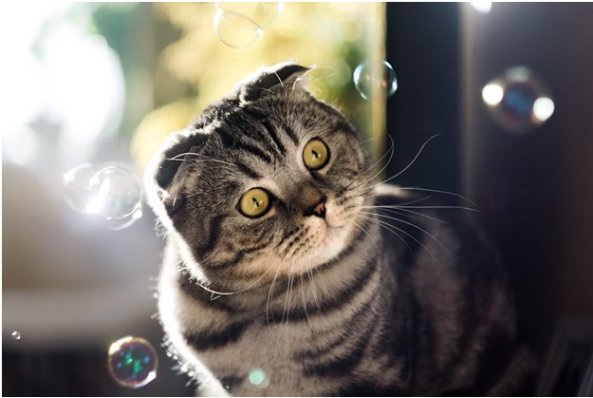Want to know the secret to better mental health?
It might be purring on your lap right now. Recent studies show that 86% of cat owners report their furry friends have a positive impact on their mental health. That’s not just cute — it’s science-backed proof that cats are natural therapists.
Here’s the thing…
Your cat isn’t just stealing your favorite chair. They’re actively improving your wellbeing in ways you probably never realized. But with veterinary costs rising and 38% of pet owners going into debt for medical care, protecting your feline therapist becomes crucial.
That’s where smart planning comes in. Many cat insurance providers now offer interest free payments to help spread those unexpected vet bills over manageable monthly installments. Because let’s face it — your mental health companion deserves the best care without breaking your budget.

Table of Contents
Here’s what you’re about to discover:
- The Real Mental Health Magic of Cats
- How Your Cat Actually Heals Your Mind
- Smart Insurance Strategies for Cat Parents
- Making Vet Bills Manageable
The Real Mental Health Magic of Cats
Your cat does more than knock things off tables and demand treats at 3 AM.
According to the American Psychiatric Association, cat owners are onto something big. 69% of cat owners specifically cite stress and anxiety reduction as a key benefit. Another 69% mention companionship, while 66% feel their cats provide a calming presence.
Pretty incredible, right?
But here’s where it gets really interesting…
Your cat’s purr isn’t just adorable — it’s literally therapeutic. Cats purr at frequencies between 20-140 Hz, which researchers have found to be medically beneficial for humans. This magical rumbling can:
- Lower your blood pressure
- Reduce stress hormones like cortisol
- Help heal bones and tissues
- Improve your breathing patterns
Think about the last time you were stressed. Did your cat mysteriously appear and start purring on your chest? That wasn’t coincidence — that was therapy in action.
How Your Cat Actually Heals Your Mind
Want to know what’s happening in your brain when you pet your cat?
It’s pure chemistry.
Interacting with cats triggers the release of feel-good hormones like serotonin, dopamine, and oxytocin. Meanwhile, cortisol (that nasty stress hormone) takes a nosedive. The result? You feel calmer, happier, and more connected.
One study followed college students during finals week — typically a stress nightmare. Students who spent just 10 minutes per day petting cats experienced significantly lower cortisol levels. That’s better living through feline therapy.
But the benefits go way deeper than stress relief:
- Purpose and routine: Caring for your cat gives structure to your day and a sense of responsibility
- Social connection: Many cat owners report feeling less lonely and isolated
- Emotional regulation: Cats provide non-judgmental companionship during tough times
- Mindfulness: Watching your cat’s peaceful behavior can help ground you in the present moment
Research from Australia found that cat owners consistently report feeling more confident, sleeping better, and facing life’s problems with greater resilience compared to non-pet owners.
Smart Insurance Strategies for Cat Parents
Here’s something most cat owners don’t realize until it’s too late…
One in three pets requires emergency veterinary treatment each year. In the US, a pet receives emergency care every 2.5 seconds. Yet only 7% of cat owners have insurance coverage.
The math is brutal:
The average cat owner spends $1,443 per year on their feline friend. But that’s just routine costs. Emergency visits average $1,500 without insurance, and some claims have reached over $40,000.
Meanwhile, cat insurance averages just $383 per year — that’s about $32 per month. Do the math and you’ll see why smart cat parents are getting coverage.
When shopping for cat insurance, focus on:
- Coverage limits: Look for plans with high annual limits or unlimited coverage
- Waiting periods: Some conditions have waiting periods before coverage kicks in
- Pre-existing conditions: These are typically excluded, so get coverage while your cat is healthy
- Deductible options: Higher deductibles mean lower monthly premiums
The key is getting coverage before you need it. Unlike human health insurance, pet insurance is designed for unexpected accidents and illnesses, not routine care.
Making Vet Bills Manageable
Nobody wants to choose between their cat’s health and their financial stability.
That’s why payment flexibility has become crucial. Many insurance providers and veterinary clinics now offer payment plans that let you spread large bills over several months without interest charges.
Here’s what to look for:
Interest-free payment options that break large bills into manageable chunks. Some plans offer 6-12 month payment schedules with no additional fees if you qualify.
Care credit programs specifically designed for veterinary expenses. These often come with promotional periods featuring 0% interest.
Insurance plans that pay the vet directly, so you’re not stuck covering the full cost upfront and waiting for reimbursement.
But remember this…
The best financial strategy is prevention. Regular checkups catch problems early when they’re cheaper to treat. A routine wellness visit costs around $150, but treating a advanced condition can cost thousands.
Your cat’s mental health benefits are too valuable to risk losing over financial concerns. With the right insurance and payment planning, you can ensure your feline therapist gets the care they deserve.
Wrapping This Up
Your cat isn’t just a pet — they’re a four-legged mental health professional who works for treats and chin scratches.
The science is clear: cats provide real, measurable benefits for stress, anxiety, loneliness, and overall wellbeing. With 86% of cat owners reporting positive mental health impacts, the evidence is overwhelming.
But here’s the bottom line…
Those mental health benefits only continue if your cat stays healthy. With veterinary costs rising and emergency treatments becoming more common, insurance isn’t a luxury — it’s essential protection for your therapeutic relationship.
Smart cat parents plan ahead. They get coverage while their cats are healthy, look for flexible payment options, and prioritize preventive care. Because the peace of mind that comes from knowing you can always afford your cat’s care? That’s therapeutic too.
Your mental health is worth protecting. And so is theirs.




